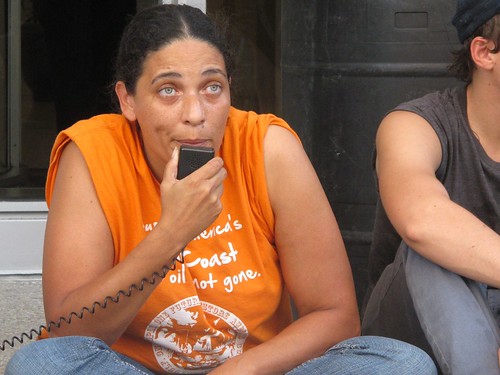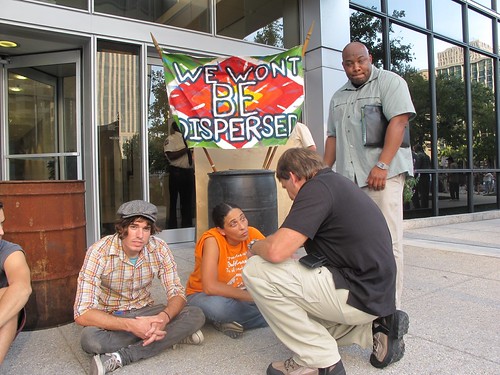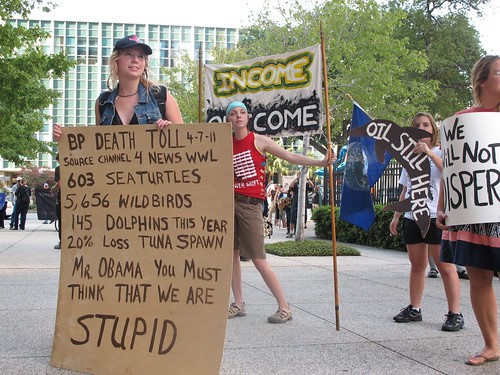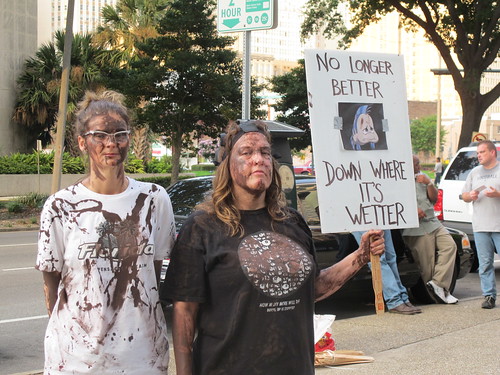BP Protest in the Gulf; The Oil's Not Gone
Exactly a year ago, former White House energy advisor Carol Browner informed the world that 75% of the oil from the worst oil disaster in history had been cleaned up, evaporated and dispersed or burned off. “Mother Nature did her part,” Browner told the world.
Don’t tell that to Cherri Foytlin, the oil worker’s wife and mother of six who walked from the Gulf to Washington for the one-year memorial of the BP blowout last April. The media has been largely silent since then, so Cherri and others decided they needed to remind people that “the oil is not gone.”
Yesterday, protesters staged a protest at BP’s gleaming downtown New Orleans offices, where they dumped a batch of black gooey tar balls freshly hauled in from the beaches of Mississippi. After sitting in front of the BP's office building doorway for three hours as police tried to convince them to move, Cherri and two other protesters were arrested and booked for trespass later in the evening. But they had made their point.
“The oil’s still here and so are we,” Cherri shouted into a megaphone in front of BP’s offices. “They’ve told us we can’t cross this line or we’ll be arrested. Well they crossed the line a long time ago when 11 men died and they sprayed poisons into our water and made cleanup workers sick. Now fishermen can’t put food on the table and people are still sick. We’ve had enough. It’s time for us to cross the line now.”


Cherri Foytlin questioned by police officers at BP protest
Photos: Rocky Kistner/NRDC
Many who attended the protest say they continue to see oily tar balls invade their shores, impacting the wildlife and beauty of their coastlines. Leanne Sarco says she spent the past year as a a naturalist in Grand Isle State Park, where tar balls still roll in along with dead fish and crabs. “They haven’t cleaned it up, they’ve just buried it. Entire communities are at the breaking point.”
Charles Taylor of Bay St Louis, Mississippi says he’s been unable to work since the oil disaster began and that he memory still suffers headaches and memory disorders. “We continue to see all kinds of weird stuff wash up, tar balls and dead fish of all kinds. Everytime I get close to the beach I feel worse.”


There are many others like him across the gulf, living with the aftermath of the country’s worst oil disaster. As fishermen and gulf residents struggle with declining fish catches, a lousy seafood market and continuing battles with BP claims administrator Ken Feinberg, no one knows when it will end.
Cherri and her fellow protesters know the oil's not gone. They know residents in the Gulf continue to suffer. Their job, they say, is to make sure people don’t forget.
